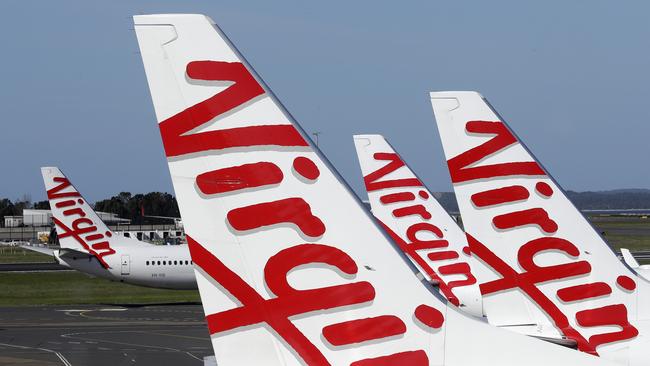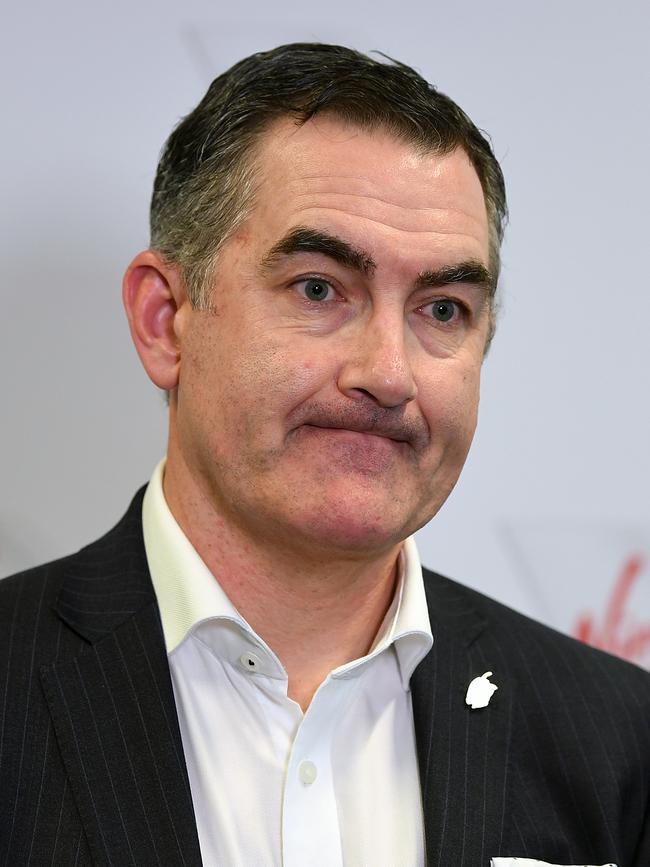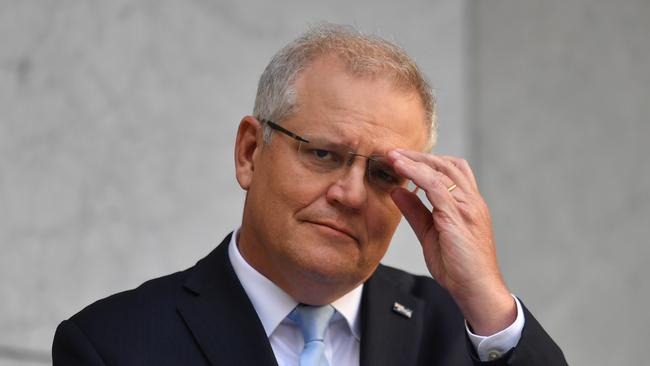Tom Minear: Refusing bail out to Virgin more complicated than we think
The government’s refusal to bail out Virgin Australia has attracted plenty of criticism on the back of the airline going into administration. And while it’s devastating for its workers, we cannot forget the airline was a struggling well before domestic and international travel was shut down, writes Tom Minear.

Opinion
Don't miss out on the headlines from Opinion. Followed categories will be added to My News.
Nearly two decades since the disastrous collapse of Ansett, Australia is again staring down the barrel of losing its second major airline.
It’s a chapter of our history no one wanted to see repeated. And yet, when Virgin Australia was placed into voluntary administration on Tuesday, Scott Morrison struck an almost optimistic note.
“It is a road out and forward into the future to ensure that the airline can emerge on the other side,” the Prime Minister said.
He acknowledged it would be a “challenging road”, and sympathised with the airline’s 10,000 staff, who face a painful few months before learning if their jobs are safe.
But he needed to point out the upside of Virgin’s fall into administration, to insist this was not a permanent grounding.
That’s because Virgin had been banging on Morrison’s door for weeks, pleading for help, and by refusing, he essentially conceded administration was inevitable.
In doing so, he exposed the government to a political blame game. It has been a risky course to chart, and while hindsight may eventually work against Morrison, it strikes me that his approach until now has been just about right.
If we rewind to February 26, when the scale of the coronavirus crisis was still unclear, Virgin released its financial results for the six months to the end of 2019.

It made for grim reading: an $88 million loss despite record revenue of $3.1 billion, and net debt totalling $5 billion. This was a struggling business well before domestic and international travel was shut down.
That’s what the government had to bear in mind when Virgin came knocking for a $1.4b loan.
There was no guarantee tipping in all that money would have been enough to save the airline, and if it wasn’t, taxpayers would have been buried under a large pile of creditors wanting their cash back, beneath shareholders including foreign governments, Chinese billionaires and oil-rich oligarchs.

Morrison and Treasurer Josh Frydenberg made it clear they would not bail out these powerful shareholders. Fair enough too, because if they expected taxpayers to invest $1.4b, why weren’t they doing the same?
The $1.4b loan wasn’t Virgin’s only request to the government. Chief executive Paul Scurrah went back eight times with bailout options — the last a proposed $200m top-up. He was disappointed the government rejected every plan proposed.
That’s understandable.
But if you were sitting on the government’s side of that negotiation, you could have hardly had confidence that Virgin was a good investment when the solutions the company suggested varied so wildly.
Deloitte is now leading the administration and has received expressions of interest from at least 10 potential buyers.

Given Virgin’s books, it is safe to assume if a buyer can be found it will need to make major changes to the airline’s operations.
Labor leader Anthony Albanese and the Transport Workers’ Union have criticised the government for rejecting Virgin’s cries for help.
Expect them to lay the blame at Morrison’s feet if workers are laid off, travellers suffer with fewer routes and higher prices, or the company collapses completely.
The government’s unwillingness to intervene is also about the precedent that would set.
While Australia is flattening the coronavirus curve, the economic pain is only going to get worse, and if taxpayers bailed out Virgin other companies would expect the same treatment.
But the government does have a role to play in helping the airline survive, particularly because its policy decisions to restrict travel are responsible for wiping out Virgin’s cash flow.
Virgin will collect almost $200m over six months in fortnightly wage subsidies for its workers. Taxpayers are also underwriting basic domestic services for eight weeks, and that will likely need to be extended, along with extra industry-wide fee and tax relief.
When Scurrah took charge of Virgin last year, he spoke about “turning a great airline into a great business”.
It was a snappy line to sum up his mission, but it brought back bad memories for those who recalled Sir Rod Eddington summing up Ansett the same way prior to its demise.
Hopefully this story ends differently.
Tom Minear is national politics editor

